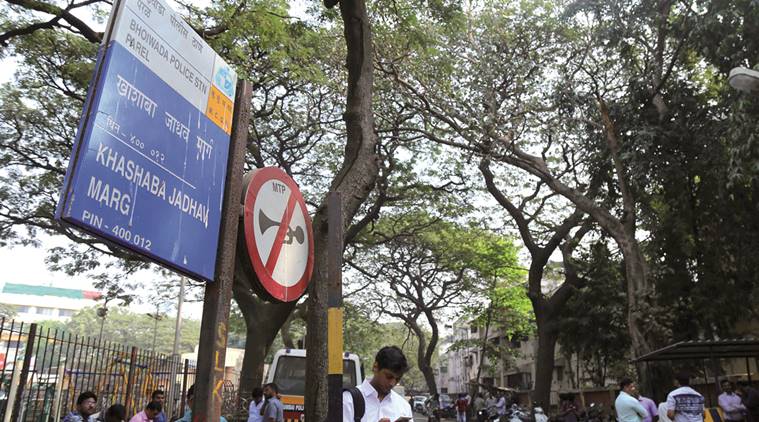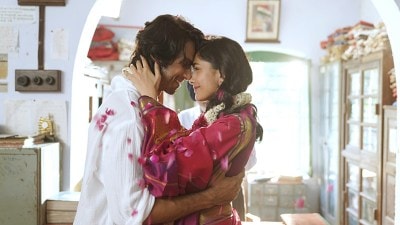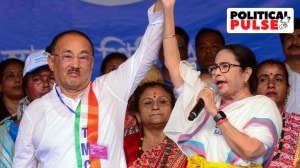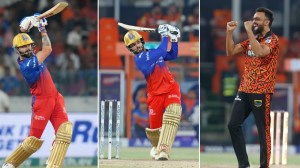- India
- International
In Dadar, a reminder of a wrestler’s contribution to Indian sport
Khashaba Jadhav Marg is named after wrestler Khashaba Dadasaheb Jadhav, the first Indian to win an Olympic medal in an individual sport.
 Khashaba Jadhav Marg is named after the first Indian wrestler to win an Olympic medal in an individual sport. Express photo
Khashaba Jadhav Marg is named after the first Indian wrestler to win an Olympic medal in an individual sport. Express photo
IT’S not an arterial road, or even a busy one. But the road connecting Bhoiwada police station with the main road in Dadar East is named after a policeman with one of the tallest achievements in sport. Khashaba Jadhav Marg is named after wrestler Khashaba Dadasaheb Jadhav, the first Indian to win an Olympic medal in an individual sport.
Then 27, Jadhav won a bronze at the 1952 Summer Olympics in Helsinki, four years after the Indian hockey team led by Balbir Singh won India its first Olympic gold in the 1948 London Summer Olympics. Jadhav later joined the police force.
All that remains to remind Mumbaikars of that feat is the road, the Bhoiwada police station on one side and the police ground opposite, where children play in the evenings, unaware of the glories associated with the man the street was named after.
Watch What Else Is Making News
Inside the police station, a constable says he has some idea of the road’s history, but another constable in the police housing colony next-door says he read about Jadhav. “He was a wrestler. I read about him in school,” he says. Asked about Jadhav’s profession, the policeman says he doesn’t know. Ask another police officer sitting in a magistrate’s court nearby, and the answer is a little more detailed: “He did us proud. He won a bronze medal for the country. He was from our state.”

Jadhav’s father, Dadasaheb, also a wrestler in Satara district’s Goleshwar village, introduced the boy to the sport when he was five. Though he encouraged all his five sons to take up wrestling, he noticed talent in his third son. Jadhav’s son still lives in Goleshwar, in a little house called Olympic Niwas.
Starting his wrestling career in 1948, Jadhav first came into the limelight at the 1948 London Olympics, when he finished 6th in the flyweight category. He was the first Indian to achieve such a high a position in the individual category.
Before the 1952 Helsinki Games, Jadhav had another challenge to face. The funds sanctioned by the government did not reach, and, according to various accounts, families from the village chipped in to make sure he made it to the Olympics.
Pune-based writer Sanjay Dudhane’s book on Jadhav’s life, ‘Olympicveer Khashaba Jadhav’ (2001), narrates how his college principal mortgaged his house for Rs 7,000 to send Jadhav to the games. To each of his creditors, Jadhav gave a printed receipt, which he took back once he repaid the loan.
Helsinki was the last Olympics he would compete in. In 1955, Jadhav joined Maharashtra Police as a sub-inspector. He had set his sights on the next Olympics, but a serious knee injury held him back. He did not give up on wrestling, though, winning bouts at police games, and training many police personnel in the sport. He died in 1984 in a road accident. The road was renamed after him thereafter.
Former DGP P S Pasricha remembers Jadhav’s contribution, while expressing sadness at the lack of acknowledgment of his role in Indian sporting history. “He did the country proud by winning a bronze at a time when the only sport that got support was hockey. He was in the police service and would have inspired many in the force. Jadhav won a medal despite several adversities including financial constraints, but never gave up. He should have won several accolades for this,” Pasricha says.
Apr 25: Latest News
- 01
- 02
- 03
- 04
- 05








































